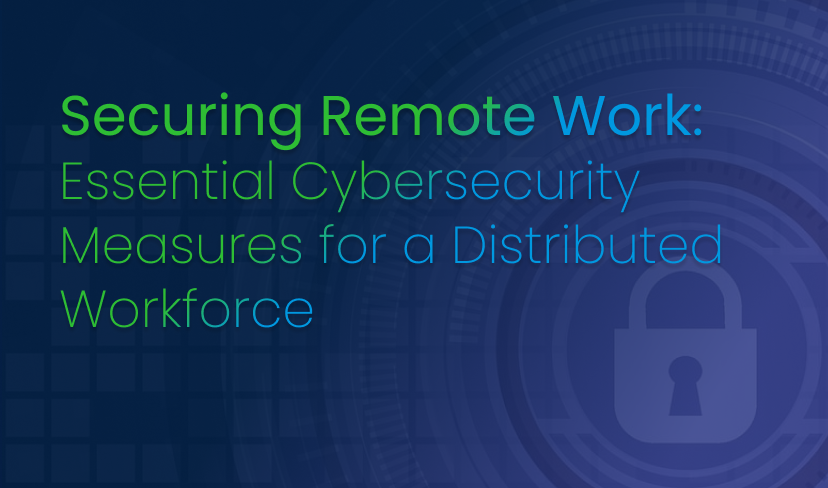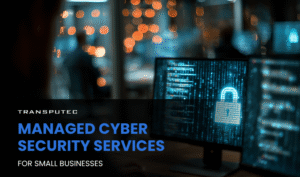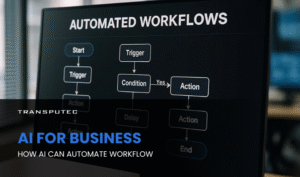As business owners and employees embrace the convenience of having a remote workforce, a crucial question looms on the horizon: How do we ensure the security of sensitive information in this interconnected world? The paradigm shift from centralised offices to remote setups brings forth an array of cybersecurity risks that demand urgent attention. The shift towards remote work has been accelerated by technological advancements and changing attitudes towards work-life balance. The ongoing COVID-19 pandemic further pushed organisations to adopt remote work practices, making it crucial for businesses to prioritise cybersecurity in this new landscape.
The Rise of Remote Workforce: Changing Workforce Dynamics
The concept of remote work has witnessed tremendous growth in recent years. It has transformed traditional work dynamics and has become an attractive option for both employers and employees. The advantages of remote work include increased job satisfaction, reduced commuting stress, and enhanced work-life balance. However, this shift also presents unique challenges, particularly in terms of cybersecurity.
Understanding Cybersecurity for a Remote Workforce
With remote work becoming more prevalent, ensuring robust cybersecurity measures is of utmost importance. Cybersecurity is essential to safeguard sensitive business data and maintain the trust of customers and partners. Remote work introduces new vulnerabilities, such as unsecured Wi-Fi networks and potential data breaches, making it imperative for businesses to prioritise cybersecurity.
Remote Workforce: A Larger Concern for Cybersecurity
Remote workers can pose a larger concern for cybersecurity due to various factors. Working outside the secure office environment, they may use personal devices and home networks that may not meet the organisation’s security standards. This creates potential entry points for cyber threats. Additionally, remote workers may not always be aware of the latest cybersecurity practices, making them susceptible to social engineering attacks and phishing attempts.
Training for Remote Workers
To address the increased risk associated with remote work, providing cybersecurity training to remote employees is essential. Educating them about the latest threats, best practices for secure online behaviour, and how to identify and report potential security incidents can significantly enhance the overall cybersecurity posture of the organisation.
Network Testing and Device Policies
Conducting regular network testing ensures that remote workers’ home networks meet minimum security requirements. This helps identify potential vulnerabilities and allows organisations to provide necessary recommendations or support to enhance security. Implementing device policies, such as requiring the use of company-authorised devices for work-related tasks, can further mitigate security risks.
Equipping the Organisation for Efficient and Secure Remote Working
To enable secure and efficient remote work, organisations must invest in appropriate equipment and technology. Providing your remote workforce with secure access to company resources through Virtual Private Networks (VPNs) and encrypted communication channels ensures data privacy and confidentiality. Additionally, equipping employees with endpoint security solutions and secure communication tools enhances protection against cyber threats.
Essential Cybersecurity Measures for Remote Work
To ensure a secure remote work environment for your remote workforce, businesses must implement essential cybersecurity measures. These measures not only safeguard company data but also instil confidence in employees and customers.
Use of Strong Passwords and Multi-factor Authentication
Encouraging employees to create strong passwords and implementing multi-factor authentication adds an extra layer of security, mitigating the risk of unauthorised access. Multi-factor authentication requires users to provide additional information, such as a unique code sent to their mobile devices, further securing login credentials.
Secure Virtual Private Network (VPN) Usage
A Virtual Private Network (VPN) provides encrypted connections, ensuring secure data transmission between remote employees and company networks. VPNs create a secure tunnel through which data travels, protecting it from potential cyber threats.
Regular Software Updates and Patching
Promptly updating software and applications helps in fixing vulnerabilities, reducing the chances of cyber-attacks. Outdated software is more susceptible to exploitation, making timely updates crucial in maintaining a secure work environment.
Endpoint Security Solutions
Implementing endpoint security software safeguards individual devices from potential threats, even outside the company network. Endpoint security solutions protect devices like laptops, smartphones, and tablets, ensuring that they meet the organisation’s security standards.
Employee Training and Awareness Programs
Regular training on cybersecurity best practices and potential threats keeps remote employees vigilant. Educating employees about the importance of cybersecurity and the potential risks associated with remote work enhances their ability to identify and prevent security breaches. A recent study by the National Science Foundation explores the cyber-behaviours of remote employees, this highlights the importance of Employee training, making it a must.
Best Practices for Cybersecurity in a Distributed Workforce
Apart from the essential measures, certain best practices further enhance cybersecurity in a distributed workforce.
Data Encryption
Encrypting sensitive data ensures that even if it falls into the wrong hands, it remains unreadable. Data encryption is an effective way to protect sensitive information during storage and transmission.
Securing Home Networks
Encouraging employees to secure their home networks with strong passwords helps protect company data. Home networks can be vulnerable to attacks, making it necessary to implement security measures to prevent unauthorised access.
Safe Use of Personal Devices for Work
Establishing guidelines for the secure use of personal devices helps minimise risks. Employees often use personal devices for work-related tasks, and ensuring that these devices meet minimum security requirements is essential.
Conclusion: Taking Action for Securing Remote Workers
Securing remote work is an ongoing process that demands continuous efforts to adapt to evolving cybersecurity challenges. Businesses must prioritise cybersecurity measures and stay updated with the latest security practices to protect their assets, data, and reputation.
To get started with Transputec’s expert cybersecurity services and ensure the safety of your valuable data and operations, contact us and schedule a consultation with our dedicated team. Let us help you fortify your remote work infrastructure and create a robust cybersecurity environment to safeguard your business against cyber threats.







